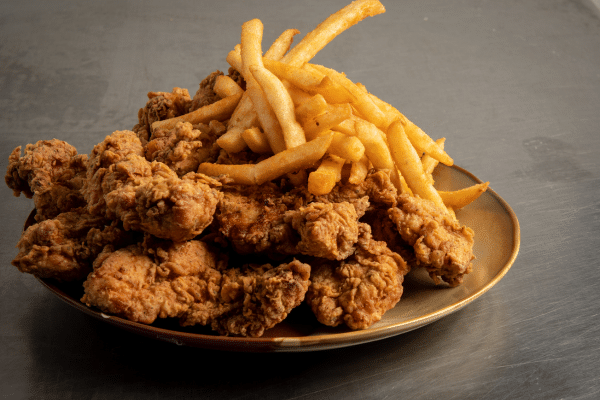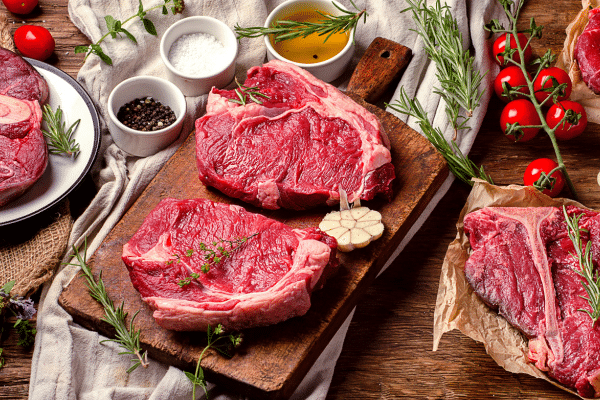Constipation, a common digestive issue, affects many people at various stages of their lives. It is often linked to dietary habits, with certain foods playing a significant role in its onset. Understanding which foods can lead to constipation is crucial in managing this uncomfortable condition. This post delves into several common food groups and specific items known to contribute to constipation, providing insights into why they affect bowel movements and offering practical tips for those looking to maintain a healthy digestive system.
Contents
Milk And Dairy Products

Dairy products, particularly those high in lactose, are well-known triggers for constipation, especially in individuals with lactose intolerance. The body’s inability to properly digest lactose can lead to gastrointestinal discomfort, including bloating, gas, and constipation. Milk, cheese, and certain yogurts, being low in fiber, can also exacerbate constipation issues. People who are lactose intolerant may experience these symptoms more severely, although even those without lactose intolerance can find dairy products contributing to their digestive woes.
Dietary adjustments can significantly mitigate the constipating effects of dairy products. Opting for lactose-free or lower lactose options, such as hard cheeses and probiotic-rich yogurts, can be beneficial. Incorporating a balanced amount of dairy in one’s diet, coupled with high-fiber foods, ensures that the nutritional benefits of dairy are enjoyed without the uncomfortable side effects. It is also advisable to monitor individual reactions to different dairy products, as tolerance levels can vary greatly from person to person.
Fried Foods

Fried foods are notorious for their role in slowing down the digestive process, primarily due to their high fat and low fiber content. The excessive oil in fried foods can lead to a sluggish digestive system, making it harder for the intestines to move waste efficiently. This lack of efficiency often results in constipation. Additionally, the process of frying can strip away beneficial nutrients and fiber from the original ingredients, further reducing their positive impact on digestion.
To counteract the constipating effects of fried foods, it is recommended to balance these indulgences with fiber-rich fruits, vegetables, and whole grains. Alternatives to traditional frying methods, such as air frying or baking, can also retain more of the food’s natural nutrients while reducing the amount of oil needed. It’s important to enjoy fried foods in moderation, ensuring they are part of a diverse and fiber-rich diet. This approach helps maintain regular bowel movements while still allowing for occasional indulgent treats.
Alcohol

Alcohol consumption plays a significant role in contributing to constipation. Its diuretic properties can lead to dehydration, a common cause of constipation. When the body is dehydrated, the colon absorbs more water from the food waste, which can make the stool hard and difficult to pass. Regular alcohol consumption, especially in large amounts, exacerbates this effect, increasing the likelihood of constipation. Additionally, alcohol can disrupt the normal functioning of the digestive system, altering gut motility and affecting the balance of intestinal flora.
Moderating alcohol intake is crucial for maintaining a healthy digestive system. Staying hydrated is key; for every alcoholic drink, consuming a glass of water can help offset the dehydrating effects. Opting for lower-alcohol beverages and limiting intake to moderate levels can also reduce the risk of constipation. It’s beneficial to pair alcoholic beverages with high-fiber snacks or meals to help support digestion and maintain regularity.
Processed Grains And White Bread

Processed grains and white bread, stripped of their natural fiber during processing, are less beneficial for digestive health. The lack of fiber means these foods do not provide the necessary bulk to help stools pass through the digestive tract easily. This can result in harder, drier stools that are difficult to pass, leading to constipation. Additionally, these foods often replace more nutritious, high-fiber options in the diet, further exacerbating digestive issues.
Switching to whole grains is an effective way to combat constipation related to processed grains. Whole grains retain their fiber, vitamins, and minerals, promoting a healthy digestive system. Foods like whole wheat bread, brown rice, and oats not only provide the necessary fiber to prevent constipation but also offer additional health benefits. Including a variety of whole grains in the diet ensures a balanced intake of nutrients and helps maintain regular bowel movements.
Chewing Gum

Chewing gum, particularly sugar-free varieties, can contribute to constipation. Many sugar-free gums contain sugar alcohols like sorbitol, which can have a laxative effect when consumed in large amounts. However, in some individuals, these sugar alcohols can lead to gastrointestinal distress and constipation. The body does not fully absorb sugar alcohols, which can lead to an imbalance in the gut and disrupt normal bowel movements.
To avoid constipation related to chewing gum, it’s advisable to limit consumption, especially of sugar-free varieties containing sugar alcohols. For those who enjoy chewing gum, opting for varieties with natural sweeteners or reduced sugar alcohol content can be beneficial. Paying attention to the body’s response to different types of gum can help identify any that may be contributing to digestive issues.
Red Meat

Red meat is often associated with causing constipation due to its high fat and low fiber content. The high-fat content can slow down the digestive process, while the lack of fiber fails to provide the necessary bulk to aid in bowel movements. Additionally, consuming large amounts of red meat can lead to the displacement of high-fiber foods in the diet, further reducing overall fiber intake and exacerbating constipation.
To balance the effects of red meat on digestion, it is advisable to pair it with fiber-rich foods. Vegetables, legumes, and whole grains can complement red meat dishes, providing the necessary fiber to aid digestion. Reducing the portion size of red meat and alternating it with leaner protein sources like fish or poultry can also help maintain a healthy and regular digestive system.
Chocolate

Chocolate, especially in large quantities, can be a trigger for constipation in some people. Certain compounds in chocolate, like caffeine and theobromine, may affect gut motility and contribute to constipation, especially in individuals who are sensitive to these compounds. Additionally, high-fat and sugar content in chocolate can slow down the digestive process, leading to constipation.
Enjoying chocolate in moderation is key to avoiding its constipating effects. Opting for darker varieties, which typically contain less sugar and fat, can also be beneficial. Pairing chocolate with high-fiber snacks or incorporating it into a balanced diet can help mitigate its impact on digestion. Keeping track of the body’s response to different types and amounts of chocolate can guide healthier consumption habits.
The Bottom Line
Understanding the dietary factors that contribute to constipation is essential for managing and preventing this common digestive issue. While foods like dairy products, fried foods, alcohol, processed grains, chewing gum, red meat, and chocolate can all contribute to constipation, moderation and balanced dietary choices are key. Incorporating high-fiber foods, staying hydrated, and being mindful of individual reactions to certain foods can help maintain a healthy digestive system. Remember, every individual’s digestive system is unique, and what might be a trigger for one person might not affect another. Regular consultation with healthcare providers and dietitians can also provide personalized advice for preventing and managing constipation.


